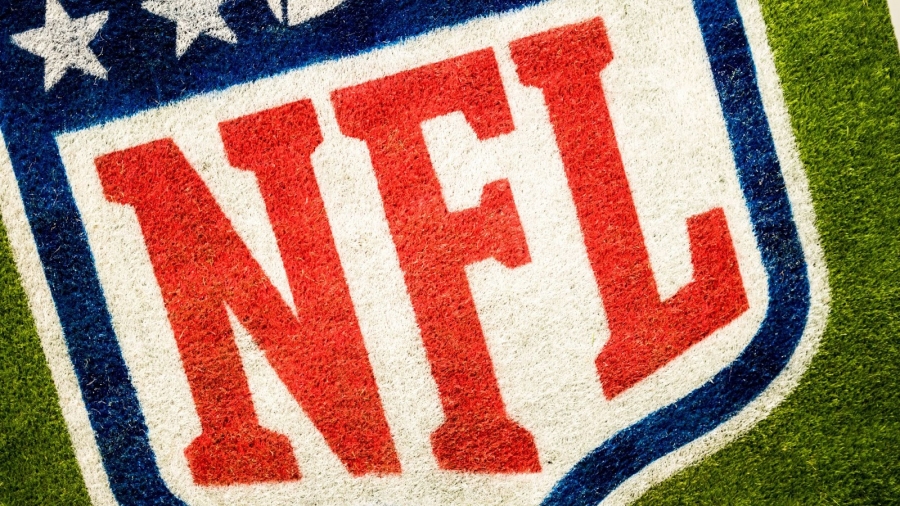Some people argue that success in fantasy football requires a high level of skill, including knowledge of the game, strategic drafting, and statistical analysis.
On the other hand, others suggest that luck plays a significant role, given the unpredictable nature of NFL games and the potential for injuries or other unforeseeable events.
What is Fantasy Football and How Does It Work
Fantasy football is an online game where participants create a virtual team of real-life NFL players and compete against one another based on the statistical performance of those players during actual NFL games.
Typically, participants draft their teams prior to the start of the NFL season, selecting players from across the league to fill positions such as quarterback, running back, wide receiver, and more.
Once the NFL season begins, participants compete against one another on a weekly basis, with their team's performance being based on the actual statistical performance of their players in NFL games.
For example, if a participant's quarterback throws for three touchdowns in a game, that player will earn points for their fantasy football team based on the scoring system established by the game's rules.
Throughout the season, participants can make adjustments to their team, such as adding or dropping players based on injuries, matchups, and other factors.
The goal of the game is to accumulate more points than one's opponents by the end of the season and ultimately win the league championship.
Arguments for Fantasy Football as a Skill-Based Game
There are several arguments in support of the idea that fantasy football is a skill-based game.
Here are some examples:
Knowledge of the Game
Successful fantasy football players often have a deep understanding of the NFL, including player strengths and weaknesses, team strategies, and trends in the league.
This knowledge can help them make more informed decisions when it comes to drafting players, making roster changes, and setting lineups. Looking at veteran player suggestions before making your own drafting decisions can set you up for a more successful season.
Statistical Analysis
Fantasy football involves analyzing a vast amount of data, including player performance statistics, injury reports, and other information.
Those who are skilled at analyzing this data can use it to make better decisions about which players to draft, start, or sit, and can gain an edge over their opponents.
Drafting Strategies
The process of drafting a fantasy football team requires strategy and skill, as participants must decide which players to select in each round based on a variety of factors, such as position scarcity, player rankings, and team needs.
Those who are skilled at drafting can build a strong team that is capable of competing at a high level throughout the season.
In-Season Management
Throughout the season, participants must make decisions about which players to start or sit, as well as which players to add or drop based on injuries, performance, and other factors.
Skilled fantasy football players can navigate these decisions with a high level of success, maximizing the potential of their roster and making strategic moves to gain an advantage over their opponents.
Overall, those who argue that fantasy football is a skill-based game believe that success in the game requires a combination of knowledge, strategy, and statistical analysis, and that those who possess these skills are more likely to be successful in the long run.
Arguments for Fantasy Football as a Luck-Based Game
There are also several arguments that suggest that fantasy football is a luck-based game.
Here are some examples:
Player Performance Variability
Injuries, unexpected game outcomes, and even weather conditions can significantly impact the performance of NFL players, and therefore the performance of fantasy football teams.
Despite extensive research and analysis, there is no way to predict with certainty how individual players will perform in any given game, making it difficult to make informed decisions about which players to start or sit.
Draft Order
The order in which participants draft their fantasy football teams can significantly impact their chances of success.
Participants who draft early in the first round have an advantage over those who draft later, as they have a greater opportunity to select top-tier players.
This means that luck can play a significant role in determining which participants are able to build strong teams and which are not.
Injuries
Injuries are a common occurrence in the NFL, and they can significantly impact the performance of fantasy football teams.
Participants who lose key players to injury are at a disadvantage, regardless of their skill level, as they may struggle to find suitable replacements or make up for lost production.
Matchup Luck
Fantasy football matchups are often decided by small margins, with a single touchdown or turnover potentially making the difference between a win and a loss.
Participants may have no control over which opponents they face in a given week, and even the strongest teams can be beaten by weaker opponents due to luck or chance occurrences.
Overall, those who argue that fantasy football is a luck-based game believe that success in the game is largely determined by factors outside of a participant's control, such as injuries, draft order, and unpredictable player performance.
While skill and strategy can certainly increase a participant's chances of success, luck is ultimately a major factor in determining outcomes.
Balancing Skill and Luck in Fantasy Football Strategy
Balancing skill and luck is a key component of developing a successful fantasy football strategy.
While luck can certainly play a role in the outcome of a fantasy football season, there are several steps that participants can take to increase their chances of success based on their skills and knowledge.
Here are some tips for balancing skill and luck in fantasy football strategy:
Focus on Draft Strategy
One of the best ways to increase your chances of success in fantasy football is to develop a solid draft strategy.
This includes researching player rankings, positional scarcity, and other factors that can impact draft decisions.
By making informed decisions during the draft, you can build a strong foundation for your team and set yourself up for success throughout the season.
Pay Attention to Matchups
Fantasy football matchups can be unpredictable, but paying attention to trends and statistics can help you make better decisions about which players to start and sit each week.
Look at how individual players have performed against specific opponents in the past, and consider factors like weather, injuries, and game location when making lineup decisions.
Monitor Player Performance and News
Keeping tabs on player performance and injury news is crucial to success in fantasy football.
Use resources like injury reports, news websites, and social media to stay up-to-date on the latest developments, and be prepared to make roster changes when necessary.
Take Risks Wisely
Taking calculated risks can pay off in fantasy football, but it's important to do so wisely.
Look for opportunities to take advantage of undervalued players or favorable matchups, but don't overextend yourself or make hasty decisions based on short-term trends.
Overall, balancing skill and luck in fantasy football requires a mix of knowledge, strategy, and risk management.
By focusing on the factors that you can control and making informed decisions based on data and research, you can increase your chances of success and minimize the impact of luck on your season.
The Debate Over Fantasy Football as a Skill or Luck-Based Game
The debate over whether fantasy football is a skill or luck-based game has been ongoing for years.
Some argue that success in fantasy football is largely determined by factors outside of a participant's control, such as injuries, draft order, and unpredictable player performance.
Others argue that skill and strategy can significantly increase a participant's chances of success.
The truth likely lies somewhere in between. While luck can certainly play a role in the outcome of a fantasy football season, skill and strategy are also important factors.
Participants who invest time in researching players, developing a solid draft strategy, and making informed decisions about which players to start each week are more likely to succeed than those who rely solely on luck.
One way to think about the role of skill and luck in fantasy football is to compare it to poker.
Like poker, fantasy football involves a combination of skill and luck.
Participants must make strategic decisions based on incomplete information, while also dealing with the unpredictable nature of the game.
Luck can play a significant role in determining outcomes, but skillful players are more likely to consistently win over the long term.
Ultimately, the debate over fantasy football as a skill or luck-based game is unlikely to be resolved any time soon.
While there are valid arguments on both sides, the best approach is likely to balance skill and luck, and to focus on making informed decisions based on a combination of research, analysis, and intuition.
Conclusion: Enjoying Fantasy Football for What It Is
Regardless of whether fantasy football is more skill or luck-based, the most important thing is to enjoy the game for what it is.
Fantasy football can be a fun and engaging way to connect with friends, test your knowledge of the sport, and experience the thrill of competition.
By approaching fantasy football with a positive attitude and a willingness to learn, you can enhance your enjoyment of the game and increase your chances of success.
Whether you're a seasoned veteran or a newcomer to the game, there is always something new to learn and discover in the world of fantasy football.
So whether you're drafting your team, setting your lineup, or watching the games each week, remember to have fun and enjoy the experience.
After all, the true value of fantasy football lies not in whether it's a skill or luck-based game, but in the connections and memories that it creates.






